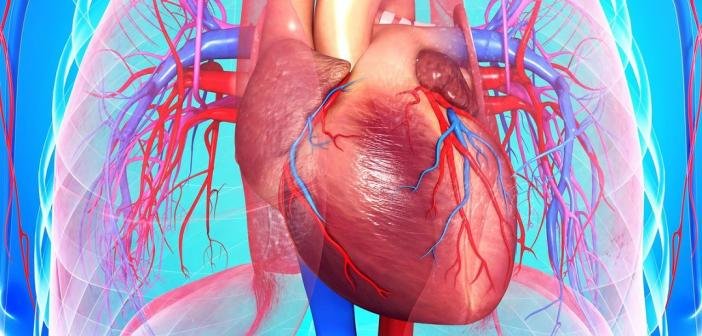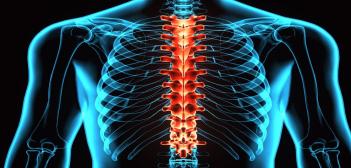Heart disease: Types, Causes, Symptoms, and Treatments
1Overview
Heart disease describes a wide range of cardiovascular problems. Numerous conditions fall under the umbrella of heart disease, including blood vessel diseases, i.e., coronary artery disease; congenital heart defects (inborn heart defects); and arrhythmias (a problem in heart rhythm).
According to a recent survey, the primary cause of death in the United States is heart disease. According to the research done by the Centers for Disease Control and Prevention (CDC), 1 out of every four deaths is caused by heart disease, which is equal to 610,000 people who die due to cardiovascular disease every year. Fortunately, there exists the best cardiology hospital in Bangalore to help you with any heart disease.
Types of Heart Disease and Causes
Arrhythmia
Arrhythmia is a heart disease that occurs when your heartbeat works irregularly. Meaning, your heartbeat works too fast, too slow, or in an irregular pattern.
Causes of Arrhythmia:
Following are the conditions that can cause Arrhythmia:
- It can cause a heart attack.
- High blood pressure
- Damage of heart tissue due to a previous heart attack.
- Due to the change in the heart structure, for example, from Cardiomyopathy.
- Coronary artery disease (blocked heart arteries)
- Diabetes
- Due to COVID-19 infection
- Sleep apnea
- Underactive thyroid gland (hypothyroidism)
- Overactive thyroid gland (hyperthyroidism)
Atherosclerosis
A heart disease occurred due to the plaque formation inside your arteries. These plaques are composed of fat, calcium, cholesterol, and other blood substances.
Causes of Atherosclerosis:
Following are the causes of Atherosclerosis:
- High blood pressure
- High triglycerides
- High cholesterol
- Insulin resistance, diabetes, or obesity
- Smoking and consumption of tobacco
- Inflammation from diseases, such as infections, lupus, or arthritis
Cardiomyopathy
The disease of the heart muscles is called Cardiomyopathy. One of Cardiomyopathy's primary signs is that it causes the heart muscles to become enlarged, firm, and thick.
Following are the causes of Cardiomyopathy:
- Continuous high blood pressure.
- Heart tissue damage due to heart attack.
- Metabolic disorders include obesity, thyroid disease, or obesity.
- Sudden heart rate increase.
- Heart valve issues.
- Nutritional deficiencies of essential minerals or vitamins, such as vitamin B-1 (thiamin).
- Complications in pregnancy.
- Overconsumption of alcohol.
- Use of some chemotherapy radiation and drugs to treat cancer.
- Disorder of connective tissues.
- Use of cocaine, anabolic steroids, or amphetamines.
- Infection due to COVID-19.
Congenital heart defects
When there is a fault in a newborn baby's heart structure, we term it a congenital heart defect. These defects can appear in the valves, arteries, and walls of the heart.
Causes Congenital heart defects
- Congenital heart disease usually passes through genes.
- A mother suffering from Type-1 or type-2 diabetes may cause a heart defect in the child.
- Taking medications during pregnancy (Myorisan, Claravis, or Zenatane) for acne or anything can cause heart defects in the child.
Coronary artery disease (CAD)
Coronary artery disease (CAD), also known as atherosclerotic or coronary heart disease, is a severe heart disease caused by plaque formation in the coronary arteries (the vessels that pass oxygen-rich blood directly to your heart).
Causes of Coronary artery disease (CAD)
- Vascular injury is the most common cause of coronary artery disease.
- The vascular injury occurred due to the plaque formation in the arteries.
- Reduction in the blood occurs when one of these arteries gets entirely or partially blocked.
Heart infections
Endocarditis is a heart infection that occurs when an irritant like a virus, bacterium, or chemical reaches the heart muscles.
What causes heart infections
- Parasites
- Bacteria
- Viruses
- Rheumatic fever
- Connective tissues disorder
- Infectious endocarditis
Heart infection symptoms can include:
- Shortness of breath
- Fever
- Fatigue or weakness
- Swelling in abdomen or legs
- Changes in heart rhythm
- Persistent or dry cough
- Unusual spots or skin rashes
Prevention
Moreover, some heart diseases, such as heart defects, are inevitable. However, you can still prevent many major heart diseases by making changes in your lifestyle, improving your heart functioning. Besides, if you observe signs of any potential heart disease, you imperatively need to visit the best cardiology hospital in Bangalore.
Following are the tips to prevent heart disease:
- Become more hygienic.
- Do 30 minutes of exercise a day.
- Quit smoking.
- Control diabetes, diabetes, and high cholesterol.
- Do not let yourself get stressed and engage in activities that make you happy.
- Lose weight if you are obese or maintain a healthy weight.
Conclusion
Cardiovascular diseases can lead to death if they remain undiagnosed. Therefore, it is crucial to visit your doctor if you ever feel unusual pain in the heart. Also, maintaining a healthy lifestyle, including proper diet and exercise, can help prevent the above-mentioned deadly heart diseases.







0 Comments